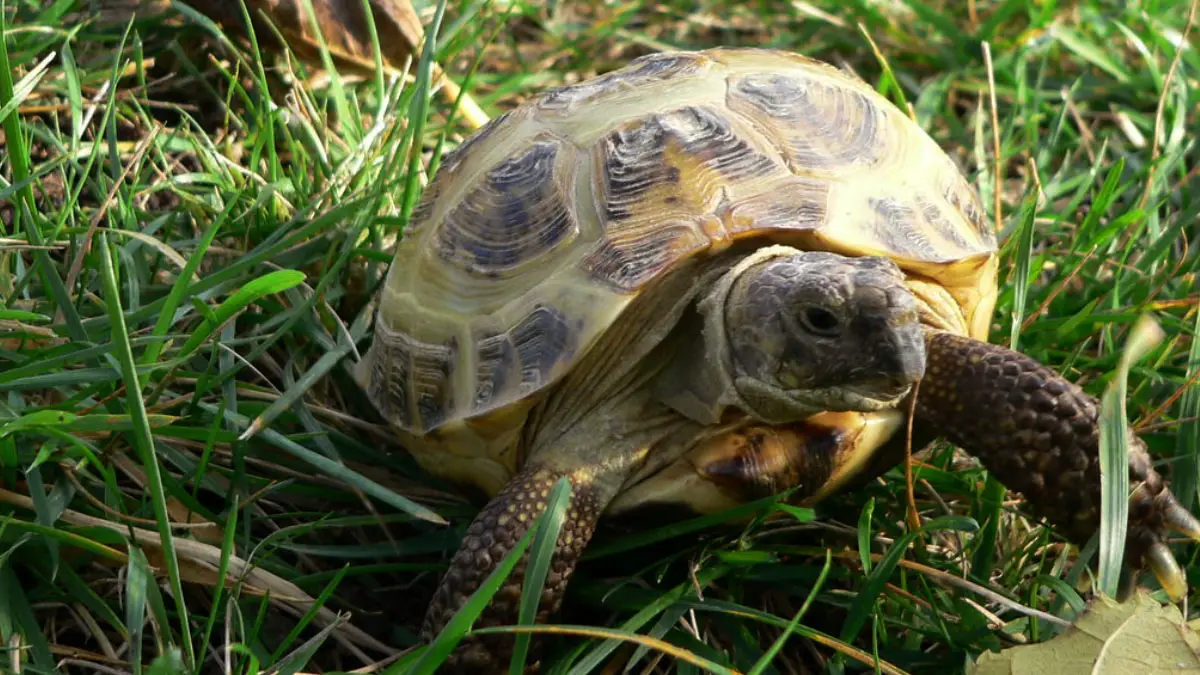How Long Does A Russian Tortoise Live? An In-Depth Discussion
Russian tortoises are highly popular pets among reptile lovers. Are you one of them considering bringing a Russian tortoise into your home as a pet? If the answer is yes, you must know an in-depth understanding of the lifespan of a Russian tortoise.
So, how long does a Russian tortoise live? In consideration of idealistic conditions and living environment, a Russian tortoise lives about 40 to 50 years. Nevertheless, by employing some effective strategies such as in the environment, diet, and habitat, it can live longer than that.
In this article, you will learn an in-depth version of the Russian tortoise’s lifespan, factors affecting their lifespan, and some tips that will increase their longevity. So let’s dive right in.
How Long Does a Russian Tortoise Live?
Contents
We see many tortoise lovers mistakenly believe that Russian tortoises live only for a short period. And the reason behind such a concept is their smaller size than other tortoise species.
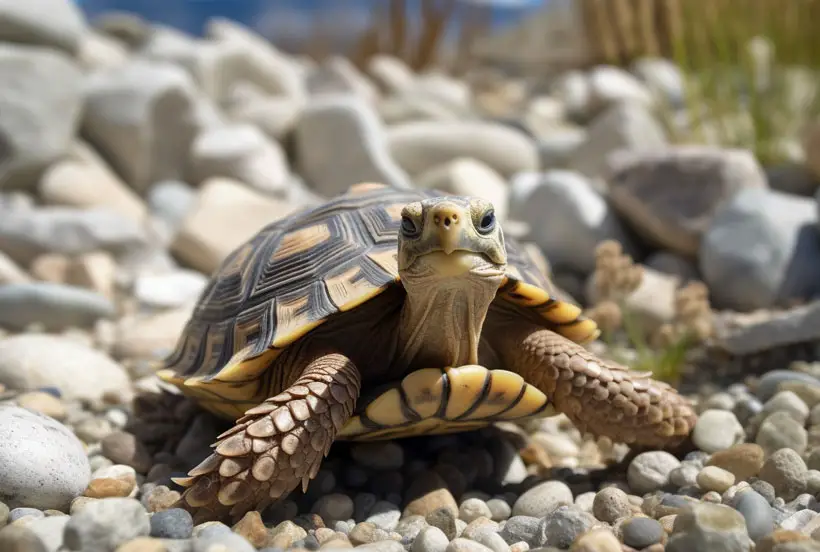
However, the reality is different. With the right care and suitable habitat, Russian tortoises have the potential to live a long and fulfilling life.
- Numerous studies show that Russian tortoises have survived captivity for 50-70 years.
- Most amazingly, there are several exceptional cases where Russian tortoises have reached 80 years or more.
- Nevertheless, to reach that 80 years mark, you need to take proper care of your pet.
Moreover, the lifespan of a Russian tortoise depends on several factors, including genetics, diet, and habitat. We will discuss these further in the article.
Factors That Influence Russian Tortoise Life Span
Now it’s time for you to learn about the factors that affect the Russian tortoise’s lifespan. It’s crucial to understand them vividly to implement these in your pet’s daily life.
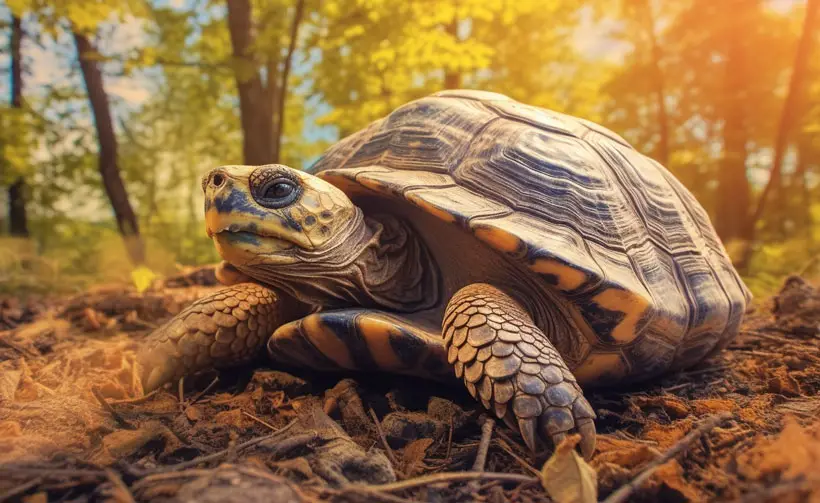
Genetics
Genetics plays a crucial role in the longevity of Russian tortoises. Just like humans, the residing genes have a more significant impact on this reptile group’s overall health and lifespan. It is undeniable that you do not have any control over their genetic formation.
But knowing your pet tortoise’s genetic history allows you to select the best course of action regarding the pet’s care facilitating a longer life. In this case, you can contact the breeder to know your pet’s parents’ and grandparents’ life span and health issues.
This information will help you substantially in the try to increase the longevity of your Russian tortoise.
Living Environment
Like every other pet, the living environment crucially matters in facilitating the longer life span of the Russian tortoise. Here are some key environmental factors that you must consider.
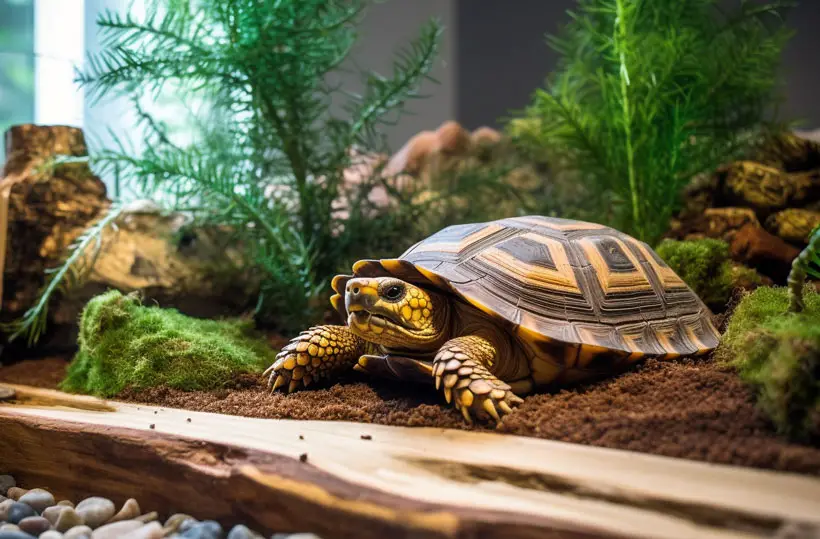
Temperature
Russian tortoises are adapted to a specific climate in their native habitat. In consideration of the ideal context, you must ensure that its enclosure-inside temperature retains a consistent value of 70°F- 90°F.
Maintaining a suitable temperature range for basking and grazing areas is crucial for their health and longevity. Frequent fluctuation in the enclosure temperature significantly affects its health and results in a degraded life span.
Enclosure and Habitat Setup
The native living environment of the Russian tortoises is harsh and arid. In a natural setting, this reptile lives in mountainous areas with an elevation of around 4,500 – 7,000 feet. Moreover, their natural habitat is surrounded by slopings and grassy lands.
Following this, you must create a similar endeavor within its living area. Indeed, you cannot facilitate the highest requirements but can import other factors. So, provide ample space for movement, burrowing, and hiding.
It should also include appropriate substrates while incorporating natural elements inclusion; rocks, plants, and hiding spots. These initiatives of yours will trigger a happy and healthy life for this pet towards a long life.
For more on habitat creation for Russian tortoises, you can check out this video:
Diet and Nutrition
Providing a balanced and appropriate diet is vital for the longevity of Russian tortoises. You should go for a combination of leafy greens, vegetables, fruits, and occasional protein sources.
It is better to provide the pet with a diet similar to their natural food sources, consisting of high-fiber, low-protein, and calcium-rich ingredients. However, don’t dare to include animal protein and cat/dog foods in your pet’s diet.
Animal food is designed for carnivorous animals like cats, but Russian tortoises are herbivores. Thus, it has a large amount of protein, fat, and other nutrients that are unsuitable for their digestive systems.
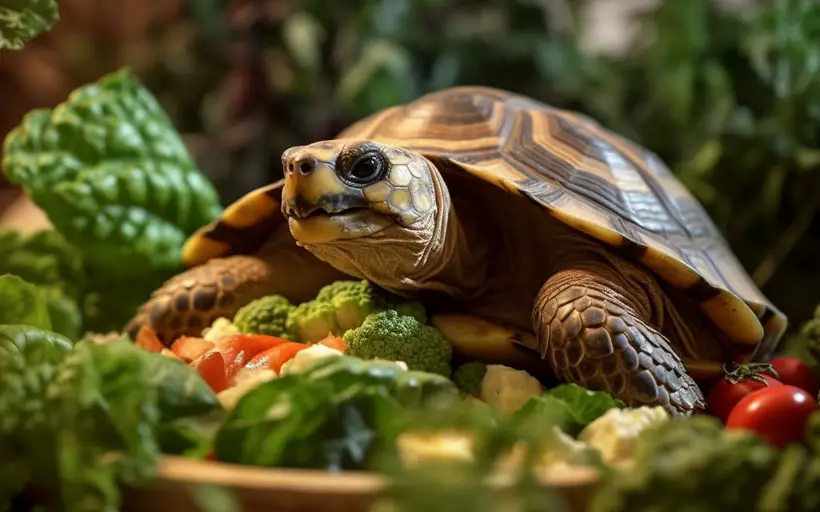
Exercise and Activity
Russian tortoises receive health-boosting from regular exercise and activity. Following this, it is required to encourage their natural behaviors like exploring, foraging, and climbing.
It stimulates them physically and mentally. However, you can easily accommodate such an environment by ornamenting its living space with obstacles and toys. Also, we highly recommend you allow your tiny pet to roam around in the open place under your supervision.
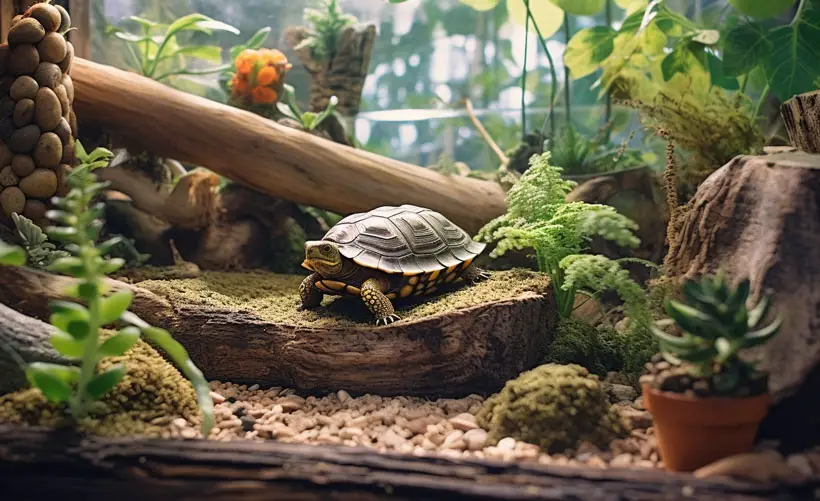
Stress and Socialization
Stress can significantly impact a Russian tortoise’s lifespan. To minimize the stresses inclusion in its mind, you must avoid exposing them to excessive noise while ensuring proper handling. Similarly, for socialization, you can take two approaches:
- Pet another compatible tortoise
- Spend quality time interacting with the pet by yourself
Table: Best Practices For Your Russian Tortoise Longevity
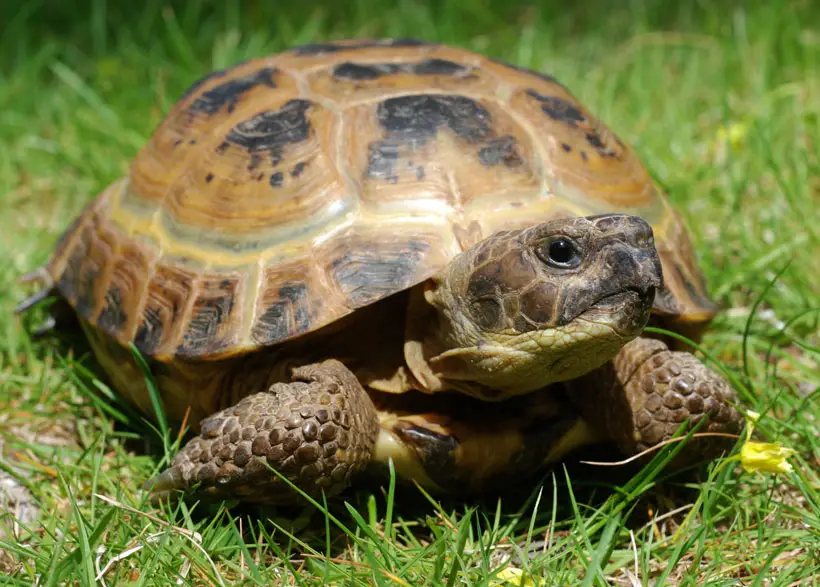
The below table contains a comprehensive dataset to promote the long life of your Russian pet tortoise.
| Element | Ideal Measure |
|---|---|
| Temperature and humidity | Temperature: 70°F- 90°F; Humidity: 40%-50% |
| Diet | Leafy greens, vegetables, fruits, and occasional protein sources; avoid high-fat/protein foods |
| UVB lighting | 10-14 hours per day |
| Visiting vet | Once in six months |
| Calcium and vitamin supplements | Cuttlefish bone, calcium powder, vitamin D3 |
FAQs
Here, we answer some of the most common questions.
As per studies, Russian tortoises can live without food for 150-180 days. Still, they require access to water deposits and adequate sunlight. And the mentioned duration varies depending on genetics, physical strength, etc.
Though soaking in the water is crucial for the survival of tortoises, Russian tortoises can go 5-7 days without water. In such cases, the respective environment’s humidity becomes crucial: the lower, the better.
The lifespan of a Russian tortoise reaching 100 years has never been reported. However, the oldest known Russian tortoise lived up to 86 years.
Final Words
Russian tortoises certainly have the potential to live impressively long lives if provided with the proper care and environment. We hope our detailing on how long does a Russian tortoise live will assist you enormously in promoting a longer life span for your pet reptile.
You must focus on factors contributing to its longevity: temperature and humidity requirement, ideal dietary, regular health checks, etc. Finally, we suggest you minimize stress factors while providing a nurturing environment similar to a tortoise’s natural habitat.

